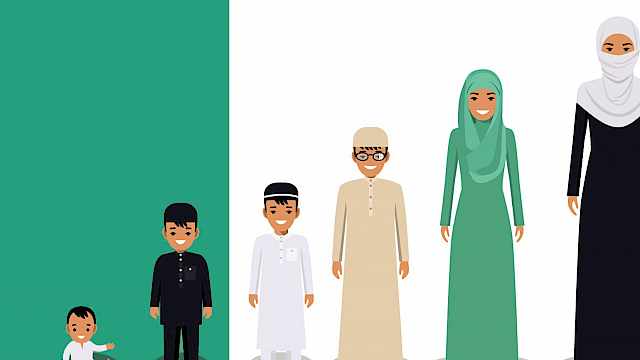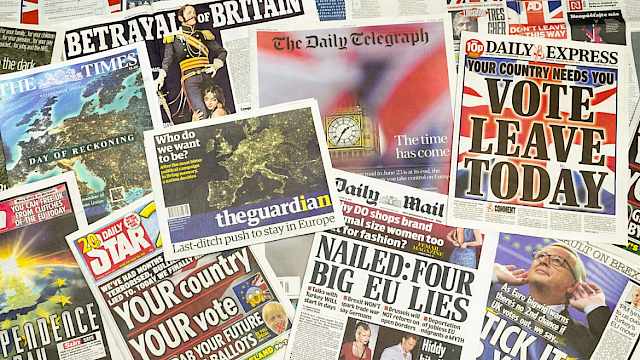It is essential that intelligence professionals understand the diverse range of communities and religions which exist within society. This specialist knowledge assists with building rapport and trust and helps to strengthen relationships. This primer provides a basic introduction to Islam, for more information see the reccommended further reading of CREST products at the end of this article.
Islam is the fastest growing religion, both globally and in the UK. There are approximately 3.4 million Muslims in the UK (equivalent to 5.7% of the population), with the largest number of Muslims currently located in London (125,809). Almost half of all Muslims are under the age of 24, making them the youngest age profile of all religions. The majority of British Muslims are of Asian descent, originating from the Indian sub-continent. Many are also from east and west Africa, as well as those who have converted or reverted to Islam. It is important to understand the demographics of the Muslim community to appreciate the reach that the Muslim community holds, and also to remember that each person holds their own view of their religion so time should be spent developing an understanding of their individual beliefs.
It is important to understand the demographics of the Muslim community to appreciate the reach that the Muslim community holds.
Fundamentals of Islam
When intelligence professionals are interacting with Muslims, it is can be helpful if they are aware of the fundamentals of Islam. Displaying such knowledge demonstrates a genuine interest in their religion, culture, and identity.
The five pillars of Islam are central to the daily lifestyle of Muslims, they comprise:
1. Declaration of faith / Shahada
This is a simple principle which translates as "There is no god but Allah, and Muhammad is the Messenger of Allah". This two-part belief is at the core of every Muslim, which they will recite regularly during prayers. An individual will remain true to Islam by believing the two separate elements. Somebody new into the faith should recite this phrase with conviction and begin their new pathway in life.
2. Prayers / Salat
Muslims should pray at least five times a day. Prayers take approx. 5 – 15 minutes and are conducted by facing Mecca on a special prayer mat. Prayer times take place at sunrise, early afternoon, late-afternoon, sunset and after dusk. Prayers involve the recitation of different chapters known as ‘surahs’ from the Quran and are mostly learnt by memory and recited in Arabic. Friday is the holy day for Muslims. It is highly encouraged for males to attend the mosque on Friday for the early afternoon prayer, this specific prayer is known as ‘Jumma’. Females can also attend, though it is not necessary.
3. Zakat / Alms
Muslims must calculate 2.5% of their total readily available annual wealth from savings, investments, precious metals, etc. In line with Islamic law known as ‘Shariah’, they must then redistribute this amount to the poor and needy. Most people will pay their zakat during the month of Ramadan as it is believed that any good deed is multiplied 70 times during this period.
4. Fasting / Sawm
During Ramadan, healthy adult Muslims abstain from consuming food and water during daylight hours for a period of 30 days. The Quran was also first revealed during Ramadan to the prophet Muhammed on the night of power, also known as ‘Laylatul Qadar’. Muslims believe their fate for the next year is written on this special night. Additionally, fasting can bring many physical health benefits to the human body.
5. Pilgrimage / Hajj
The annual holy pilgrimage, known as ‘Hajj’, is a trip to Saudi Arabia to visit the holy sites in the country. Every Muslim should complete this journey if they are physically and financially able to do so. The ‘Kabba’ is a cube building which is in the middle of the Masjid al-Haram. When Muslims pray across the world, they aim towards the Kabba for unity and the oneness of Allah. A smaller pilgrimage known as ‘Umrah’ can be completed at any other time of the year, this involves similar rituals and visits to holy sites in Mecca.
Halal vs. Haram:
Halal means lawful. It encompasses everything lawful in a Muslim person’s life including clothing, employment, social circle, food, drink, and other lifestyle choices. Haram in Arabic is the opposite of Halal, it is translated as forbidden or unlawful. Haram includes dishonest behaviour, gambling, consuming alcohol, and tattoos.
Islamic terminology:
Muslims use Islamic terminology throughout general conversation. This is highly encouraged as it is a reminder that every action is from the mercy of Allah. On a regular basis and through all conversation types the following terms can be used:
As-salaam-alaikum – Peace be onto you
Wa-alaikum-salaam – And peace be upon you too
Allah hafiz – Goodbye and may God protect
Insha’Allah – If Allah wills it
Mash’Allah – Allah’s will
Jazak’Allah – Thank you
Bismillah – In the name of Allah
Implications for source handlers
Advancing the knowledge of intelligence professionals in the fundamentals of Islam and key Islamic terminology provides an opportunity to assist with building rapport through demonstrating competence.
In an operational setting, intelligence professionals should consider meeting outside of prayer times and choose suitable venues for physical meetings. Displaying an overt awareness of the food, drink and lifestyle choices that are Halal, will help avoid situations which may be deemed ignorant and negatively impact on perceived competence. For example, it is important to understand the holy month of Ramadan and to consider whether operational adjustments need to be made during this period.
Effective rapport building may be achieved by using Islamic terminology when interacting with Muslims, when meant as a means to show genuine respect. There is no requirement for the intelligence professional to be a follower of the faith and there is low risk of causing offence when used appropriately. Use of such terms in general conversation should elevate the competence of the intelligence professional, demonstrating respect, tolerance, and empathy, and fostering an environment from which trust can be built.
If you found this introduction useful, we urge interested readers to also explore the following CREST products:
- Full Report: Muslims and Islam in the UK
- A series of 7 guides on British Muslims
- Guide: Islam: The Five Pillars
- Guide: Islam: Conversion
- Article: What’s The Difference Between Sunni And Shi’a Muslims?
- Guide: Sunni And Shi‘a Islam: Differences And Relationships
Copyright Information
As part of CREST’s commitment to open access research, this text is available under a Creative Commons BY-NC-SA 4.0 licence. Please refer to our Copyright page for full details.
IMAGE CREDITS: Copyright ©2024 R. Stevens / CREST (CC BY-SA 4.0)





